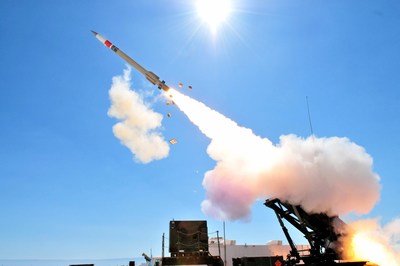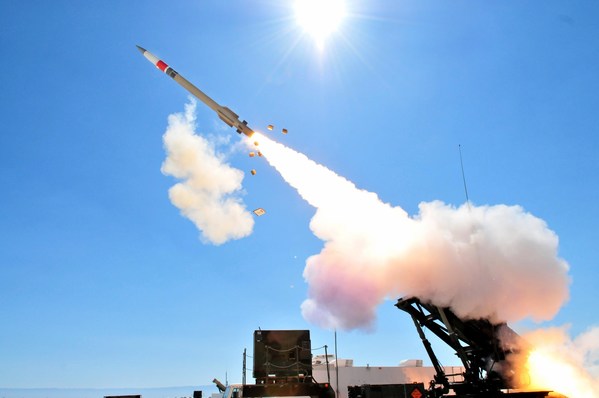Releases
DALLAS, March 6, 2018 /PRNewswire/ -- Two Lockheed Martin (NYSE: LMT) PAC-3 Cost Reduction Initiative (CRI) interceptors successfully intercepted two tactical ballistic missile targets recently in a test at White Sands Missile Range, New Mexico. The PAC-3 CRI intercepts support the U.S. Army's Field Surveillance Program (FSP) ensuring the reliability and readiness of fielded PAC-3 missiles. The test also marked the tenth and eleventh successful PAC-3 CRI FSP intercepts in six years. More than sixty PAC-3 CRI and Missile Segment Enhancement (MSE) interceptors have achieved flight test success at White Sands Missile Range.

The U.S. Army-led missile defense flight test demonstrated the unique Hit-to-Kill capability of the PAC-3 family of missiles which defends against threats through body-to-body contact. The test also reconfirmed PAC-3 CRI's ability to detect, track and intercept incoming missiles while meeting fielded reliability requirements. Representatives from the U.S. Army and current and potential Foreign Military Sales PAC-3 customers observed the test.
"PAC-3 continues to be successful against today's evolving threats, and it remains the only combat proven Hit-to-Kill interceptor in the world," said Jay Pitman, vice president of PAC-3 programs at Lockheed Martin Missiles and Fire Control. "Today's global security environment demands reliable solutions. We expect PAC-3 interceptors to continue serving as an essential element in integrated, layered defense systems."
The PAC-3 CRI and MSE are high-velocity interceptors that defend against incoming threats, including tactical ballistic missiles, cruise missiles and aircraft. Eleven nations have procured the PAC-3 missile defense interceptor: the U.S., Germany, Kuwait, Japan, Qatar, Republic of Korea, Kingdom of Saudi Arabia, Taiwan, Romania, the Netherlands and the United Arab Emirates.
A world leader in systems integration and development of air and missile defense systems and technologies, Lockheed Martin's experience spans missile design and production, infrared seekers, command and control/battle management, as well as communications, precision pointing and tracking optics, radar and signal processing, and threat-representative targets for missile defense tests.
About Lockheed Martin
Headquartered in Bethesda, Maryland, Lockheed Martin is a global security and aerospace company that employs approximately 100,000 people worldwide and is principally engaged in the research, design, development, manufacture, integration and sustainment of advanced technology systems, products and services.

SOURCE Lockheed Martin


